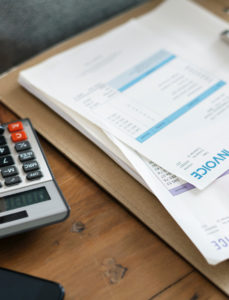Unexpected expenses can put a damper on your financial life.

You never know what may come up – vet bills, car repairs, unplanned travel expenses. Life is nothing if not full of surprises.
So, how do you pay for unexpected expenses when they arise? Borrow? Use your credit card? Take out a payday loan?
There is a better way. Wouldn’t it be nice to have some cash stored away to help you out when those emergencies pop up? Well, you can! It’s called an emergency fund. That’s what it’s for!
What is an emergency fund?
An emergency fund is a designated amount of cash – easily accessible – to prevent you from going into debt in case of a financial emergency. But how much should you put aside? Most experts agree a suitable amount for an emergency fund is 6-12 months’ worth of expenses.[i]
Sound like a lot of money? It is, but don’t let that stop you. An emergency fund can help make the difference between getting through a single emergency with merely a hiccup or spiraling down the financial rabbit hole of debt. Or it may help you ride through a few months if you lose your source of income.
It’s okay to start small
The thought of saving six months’ worth of income might make most of us throw up our hands in defeat before we even start.
Don’t let that get you down, though. The point is to start, even if it’s small. Just don’t give up. Begin with a goal of saving $500. Once you’ve achieved that, celebrate it! And then work on the next $500.
Slowly, over time, your emergency fund will increase and hopefully, so will your peace of mind.
Take advantage of “found money”
Found money is extra money that comes your way, that isn’t part of your normal income. It can include things like bonuses, inheritances, gifts, or cash from selling personal items.
When you find yourself with some found money, keep the 50/50 rule in mind. Put half the money toward your emergency fund, and put half toward whatever you like – your retirement, making this holiday season a little extra special, or add it to the college fund.
Let’s say you earned a bonus of $500 at your job. You worked hard and want to reward yourself. Go for it! Use half the bonus to buy the new shoes or the basketball game tickets, but put the other half in your emergency fund. It’ll be a win-win for you.
Take advantage of direct deposit
One of the best ways to help build your emergency fund is to make your deposits automatic. Siphon off a percentage of your paycheck into your emergency fund. Again, it’s key to start small here.
Know what an emergency is and what it is not
One of the fundamentals of building and maintaining an emergency fund is knowing what an emergency is and what it’s not. Unexpected expenses that require a dip into your emergency fund will happen – that’s what it’s for. But tapping in to your emergency fund on a regular basis shouldn’t be the norm. (If it is, you might need to take a look at your overall budget.)
Unexpected expenses your emergency fund may help cover:
- Car repairs
- Unexpected medical bills
- Emergency home repairs
- Unplanned travel for a death in the family
Some expenses that are not really emergencies:
- A great sale on a cute winter coat
- A spur of the moment weekend getaway
- A spa day – no matter how much you need it!
Keep financial safety in mind
So the next time you see a gorgeous pair of shoes that you just “have to have” – ask yourself if they’ll be worth it if your 10-year-old dishwasher fails and your next dishwasher has to be you!
Don’t forget – start small. An emergency fund is about helping put a financial safety net in place. Don’t find yourself potentially compounding the difficulty of a true emergency by not having the funds to deal with it.
[i] https://www.nerdwallet.com/blog/banking/banking-basics/life-build-emergency-fund/